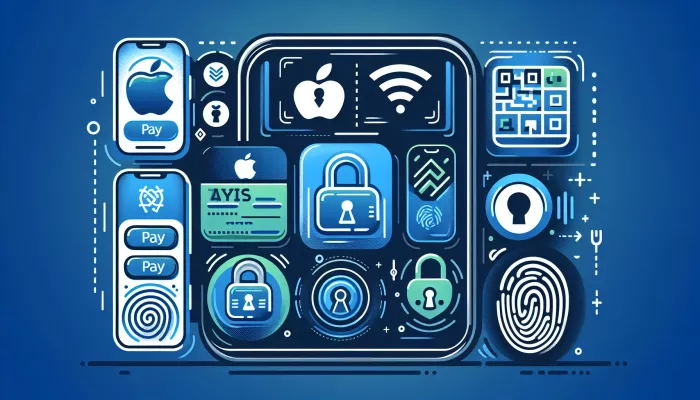
Understanding how digital wallets work
To the digital wallets, also known as e-wallets, represent a significant evolution in the way we carry out financial transactions.
Simply put, they are applications or software programs that securely store payment information and passwords for an individual.
Thanks to them, buying and paying for services online and in physical stores has become faster, safer and more convenient.

A digital wallet stores credit card, debit card, coupon and loyalty program information of its users.
To get started, you need to download a compatible digital wallet app to your mobile device or computer.
After installing, the next step is to add your card information manually or through a simple photograph.
The transaction process with a digital wallet is quite simple.
When making a purchase, all you need to do is bring your device closer (phone, tablet, smart watch)
Merchant's payment terminal if the device supports NFC (Near Field Communication) technology.
NFC technology allows the transaction to be completed without you having to physically hand over your card or manually enter payment information.
As for security, digital wallets use advanced methods such as encryption and tokenization to protect your information.
Tokenization replaces your card details with unique codes (tokens) during each transaction, meaning your card numbers are never shared with the merchant, minimizing the risk of fraud.
In the digital age, payment methods such as Apple Pay, Google Pay and similar technologies have transformed the way we conduct transactions.
These digital wallets offer a series of benefits and conveniences that simplify our daily lives, making the purchasing process safer, faster and more convenient.
Let's explore some of these advantages:
One of the biggest advantages of using digital wallets is the convenience. With them, there is no need to carry physical cards or cash.
Everything you need is on your smartphone, a device that is already part of our daily lives.
Making payments is as simple as holding your phone near the payment terminal and confirming the transaction.
When it comes to security, Apple Pay, Google Pay and the like are at the forefront.
These services use advanced technologies such as tokenization, which replaces your card numbers with a unique digital code for each transaction, and biometric authentication.
Ensuring that only the authorized owner can perform the transaction.
Efficiency is another blessing of these platforms. Transactions are processed almost instantly, reducing the time you spend in queues.
This speed is ideal for those who have a busy routine and value every second of their day.
In addition to basic functionality, many digital wallets offer integration with rewards programs and special promotions.
This means you can earn points, discounts and even cashback without needing additional cards. It’s a smart way to save money while using technology.
The use of digital payment methods also contributes to reduction of paper use, reducing the demand for printing receipts and manufacturing plastic cards.
This is an important step towards more conscious consumption and a lower environmental impact.
In short, digital wallets like Apple Pay and Google Pay offer a compelling combination of safety, convenience and efficiency.
With the continued adoption of these technologies by stores and services around the world, the benefits will only grow, making our lives more practical and safer.
Digital wallets have become indispensable tools in our daily lives, providing not only convenience, but also promoting a new form of financial interaction.
However, along with the mass adoption of these services come pertinent concerns about the security of these platforms.
Let’s take a look at how digital wallets keep user information safe and what you can do to protect your finances.
Digital wallets, such as Apple Pay, Google Pay, and similar, are built on a robust security framework.
They use technologies such as tokenization and the two-factor authentication to protect transactions.
Tokenization replaces credit card details with a unique code used only for that specific transaction.
This means that even if the transaction data is intercepted, it would be virtually useless to the attacker.
The reliability of digital wallets is supported by constant improvements in their security measures.
Companies like Apple It is Google invest significantly to ensure that their payment systems are secure.
However, security does not depend solely on service providers;
Users also play a crucial role by adopting solid security practices and staying informed about potential threats.
Digital wallets have revolutionized the way we conduct daily transactions, offering a combination of convenience and speed.
Despite the potential security risks, by following the recommended guidelines and utilizing the provided security measures, you can minimize the dangers and enjoy the benefits of digital wallets.